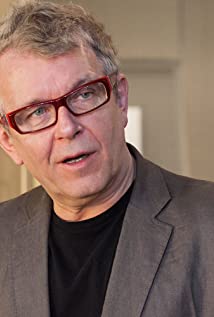Zbigniew Rybczynski (Rib-chin-ski) was born on January 27, 1949, in Lodz, Poland, but was raised in Warsaw, where he attended an arts high school and was trained as a painter. He went on to study cinematography at the world-renowned Lodz Film School, where he began experimenting with the film medium. His first projects were Kwadrat (1972) and "...
Show more »
Zbigniew Rybczynski (Rib-chin-ski) was born on January 27, 1949, in Lodz, Poland, but was raised in Warsaw, where he attended an arts high school and was trained as a painter. He went on to study cinematography at the world-renowned Lodz Film School, where he began experimenting with the film medium. His first projects were Kwadrat (1972) and "Take Five" (1972). Along with his other works, they broke new ground in the use of pixelation, optical printing, animation and other compositional film devices. "Zbig", as he's known, was active in the avant-garde group Warsztat Formy Filmowej and he cooperated with Se-Ma-For Studios in Lodz, where his art movies were shot, including Plamuz (1973), Zupa (1975), Le nouveau livre (1976) and Tango (1981). At the same time he worked as a cinematographer on several feature films, including shorts by 'Andrzej Baranski', Piotr Andrejew and the acclaimed Tanczacy jastrzab (1977) by 'Grzegorz Krolikiewicz'.Between 1977 and 1983 Rybczynski worked in Austria, where Weg Zum Nachbarn (1977) and Mein Fenster (1979) were made. He also set up a visual effects studio in Vienna for Austrian TV. As the director of photography, co-writer and editor, he contributed to the cult horror feature Schizophrenia (1983) (also known as "Fear"), directed by Gerald Kargl. In the meantime, Zbig was involved in the Solidarity (Solidarnosc) movement in Poland. When martial law was declared, he received political asylum in Austria and it was there that he learned of his Academy Award for Best Animated Short Film nomination for "Tango". After winning the Oscar for that film in 1983, Zbig and his family emigrated to the US and settled in New York City. At his Manhattan and Hoboken (NJ) studios, equipped with state-of-the-art high definition video, Rybczynski conceived and produced - as the first filmmaker ever pioneer video films using HD technology. In 1984 he was assigned byproducer Lorne Michaels to create two short pieces, The Discreet Charm of Diplomacy (1983) and The Day Before (1983) (both produced by Alan Kleinberg) for NBC's _"The New Show" (1983)_ (v). In the Zbigq Vision Studios Rybczynski produced his most important and acclaimed works: Steps (1987); The Fourth Dimension (1988) produced by Robin O'Hara; L'orchestre (1990); and his favorite film, L'encyclopédie audio-visuelle: Kafka (1992). Zbig is the creator of more than 30 outstanding music videos, including John Lennon's "Imagine" and videos for artists such as The Art of Noise, Mick Jagger, Pet Shop Boys, Chuck Mangione and Lou Reed. He was honored with three MTV Music Video Awards and the MTV Video Vanguard Award for his role as "a visionary in the field of music video". His work in film and video has also earned him numerous other awards such as three American Video Awards, three Monitor Awards for Best Director, the 1986 Billboard Music Video Award for Most Innovative Video, the 1986 BPI Video of the Year Award, as well as grand prizes at the Festivals at Annecy, France, in 1981, the Oberhausen Film Festival in both 1979 and 1981, and the Rio International Film Festival in 1987. In 1990 Zbig won the Emmy Award for special effects in his film "The Orchestra", a one-hour classical music HDTV program for PBS. It was the first Emmy ever given to a High Definition production. Later that year he was honored by the Japanese Ministry of Posts and Telecommunications for his outstanding work in advancing the uses of HD technology. In Italy he was awarded the Premio Internazionale Leonardo for his overall contribution to video, and in France he was presented with the Paris Cite for outstanding achievement in HD. In 1992 Zbig completed work on the HD piece "Kafka". Produced for Telemax of Paris as a part of its Audio/Visual Encyclopedia series, the film won the 1992 Special Festival Prize at the International Electronic Cinema Festival Tokyo/Montreux and the Special Jury Award at the San Francisco International Festival in 1993. From 1994-2001 Rybczynski worked in Germany, first at the CBF Studios in Berlin, where he developed new production techniques in the areas of image compositing and motion control photography (he holds several innovative patents in that area and in computer programs). Later, in Cologne, he continued his research and was a Professor of Experimental Film at the Academy of Media Arts. After several years of being involved in movie technology such as motion control, optics, computer software and other instructive work, Zbig made the decision to return to his passion: making movies. That is what brought him back to Los Angeles, where he now resides. Thanks to many rewarding years of gaining knowledge and experience in the various artistic and technological aspects of filmmaking, Zbig firmly believes that the best is yet ahead of him. His dream is to collaborate with other filmmakers on creating stunning and ground-breaking films which - and he is convinced of this - will always be of interest to audiences worldwide.
Show less «



